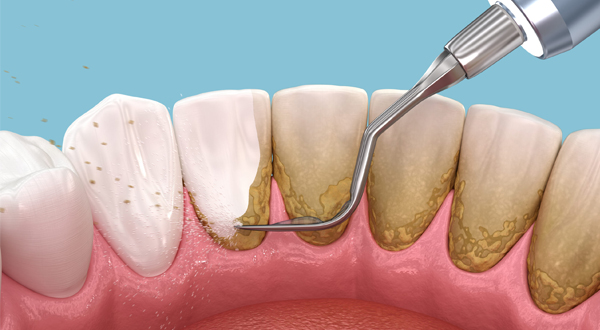
Deep Periodontal Cleaning.
What is involved in scaling and root planing?
Scaling
Root Planing
Advantages of Scaling & Root Planing Treatment
If treatment is successful, scaling and planing can provide several periodontal benefits. Firstly, it can help prevent disease by eliminating bacteria that can travel through the bloodstream and cause heart and respiratory diseases. Research has confirmed this connection between periodontal infections and other health issues.
Additionally, treatment can protect teeth from being lost. When gum pockets become deeper than 3mm, the risk of periodontal disease increases. As these pockets deepen, more bacteria can accumulate, leading to chronic inflammation that damages gum and bone tissue, ultimately resulting in tooth loss.
Lastly, scaling and root planing can enhance the appearance of the mouth and reduce bad breath caused by food particles and oral bacteria. The procedures also remove superficial stains on the teeth, providing an added bonus to the treatment.